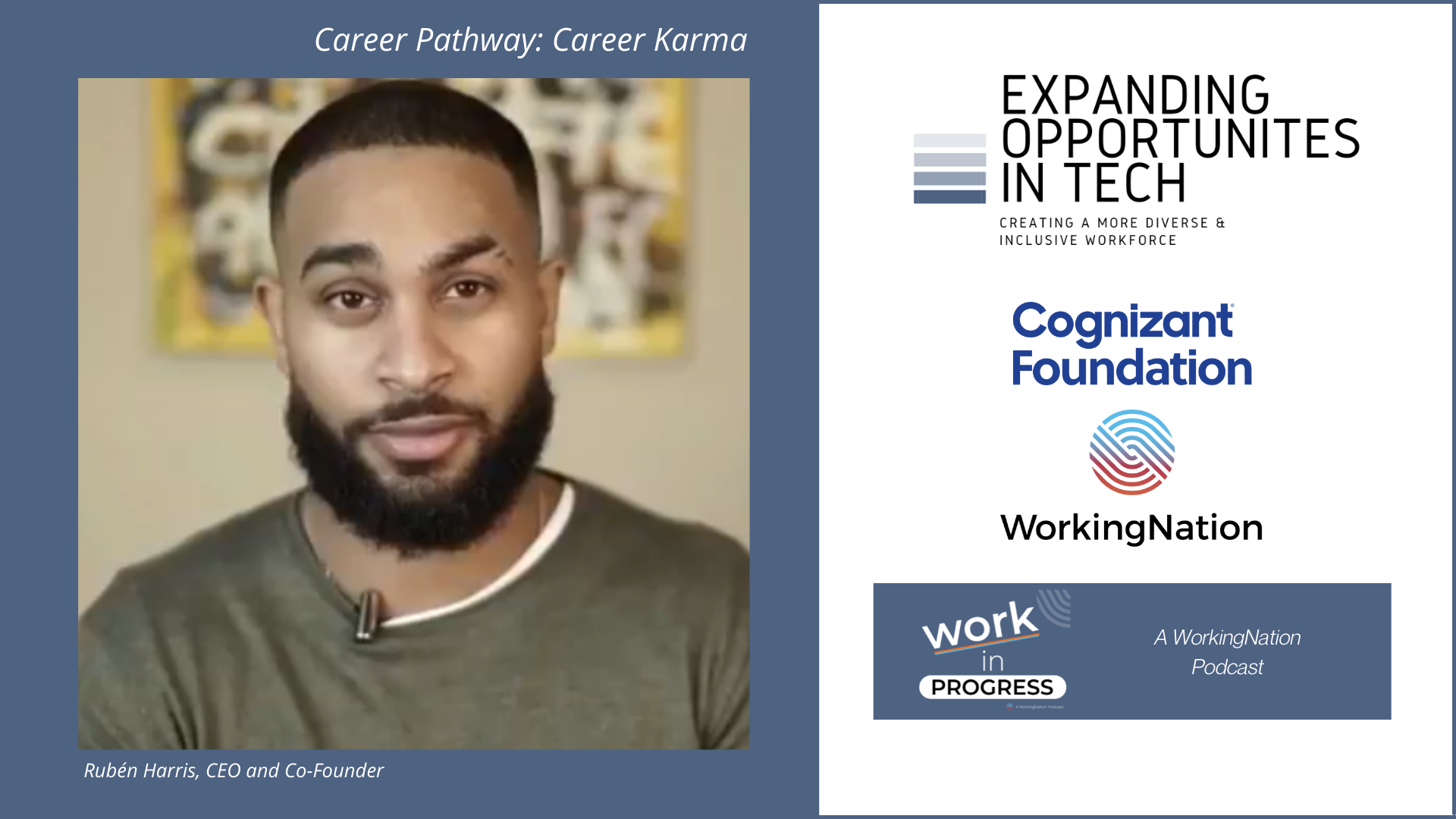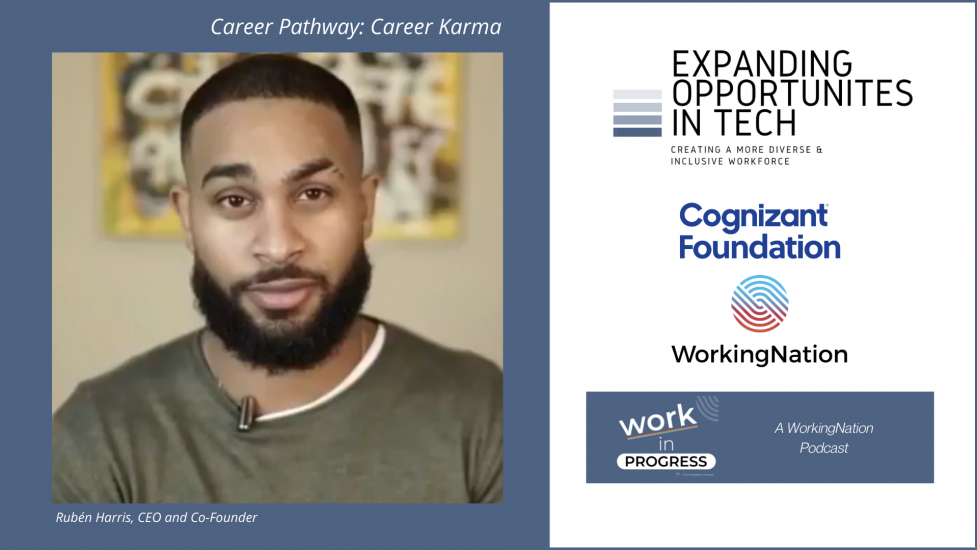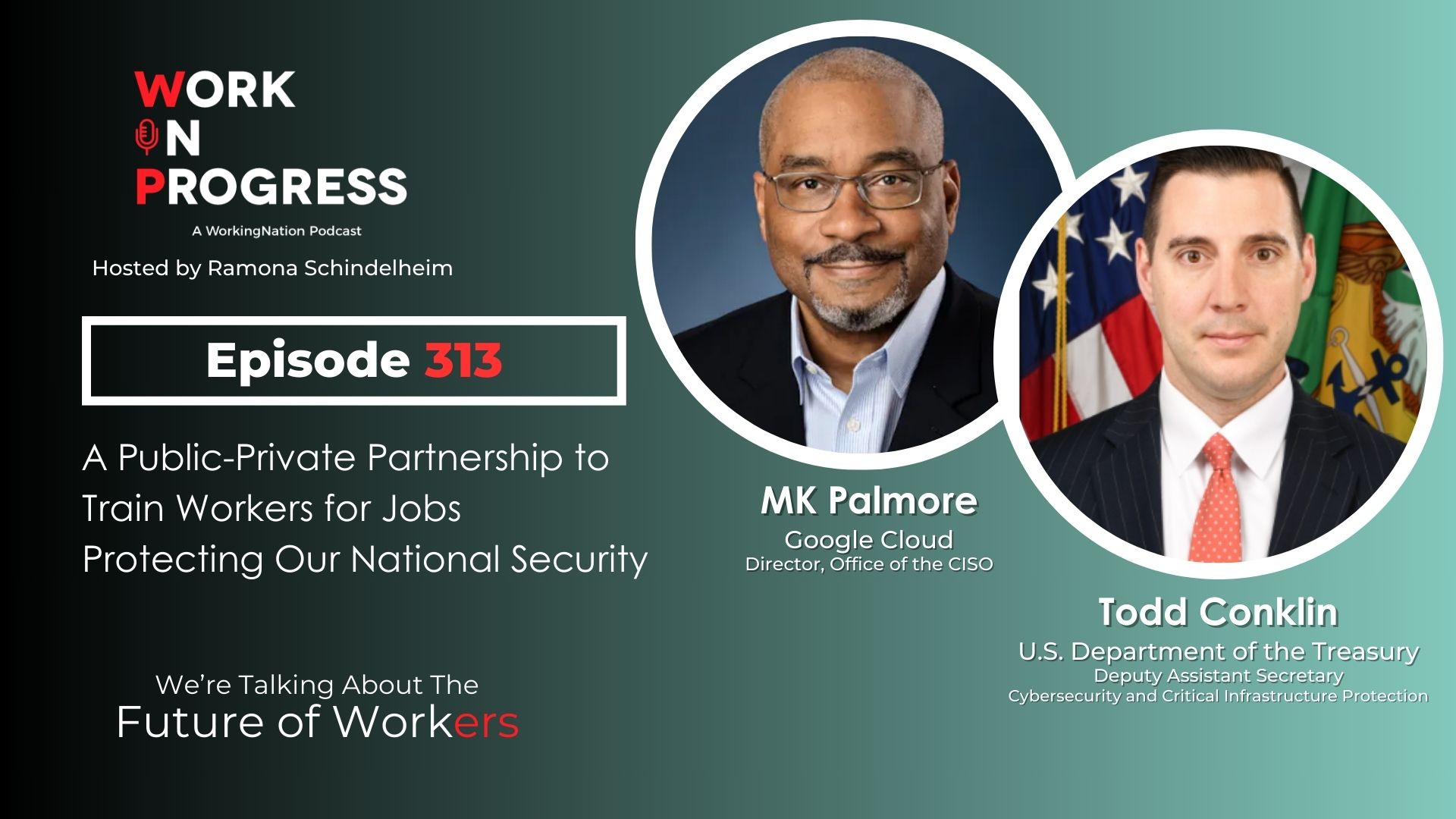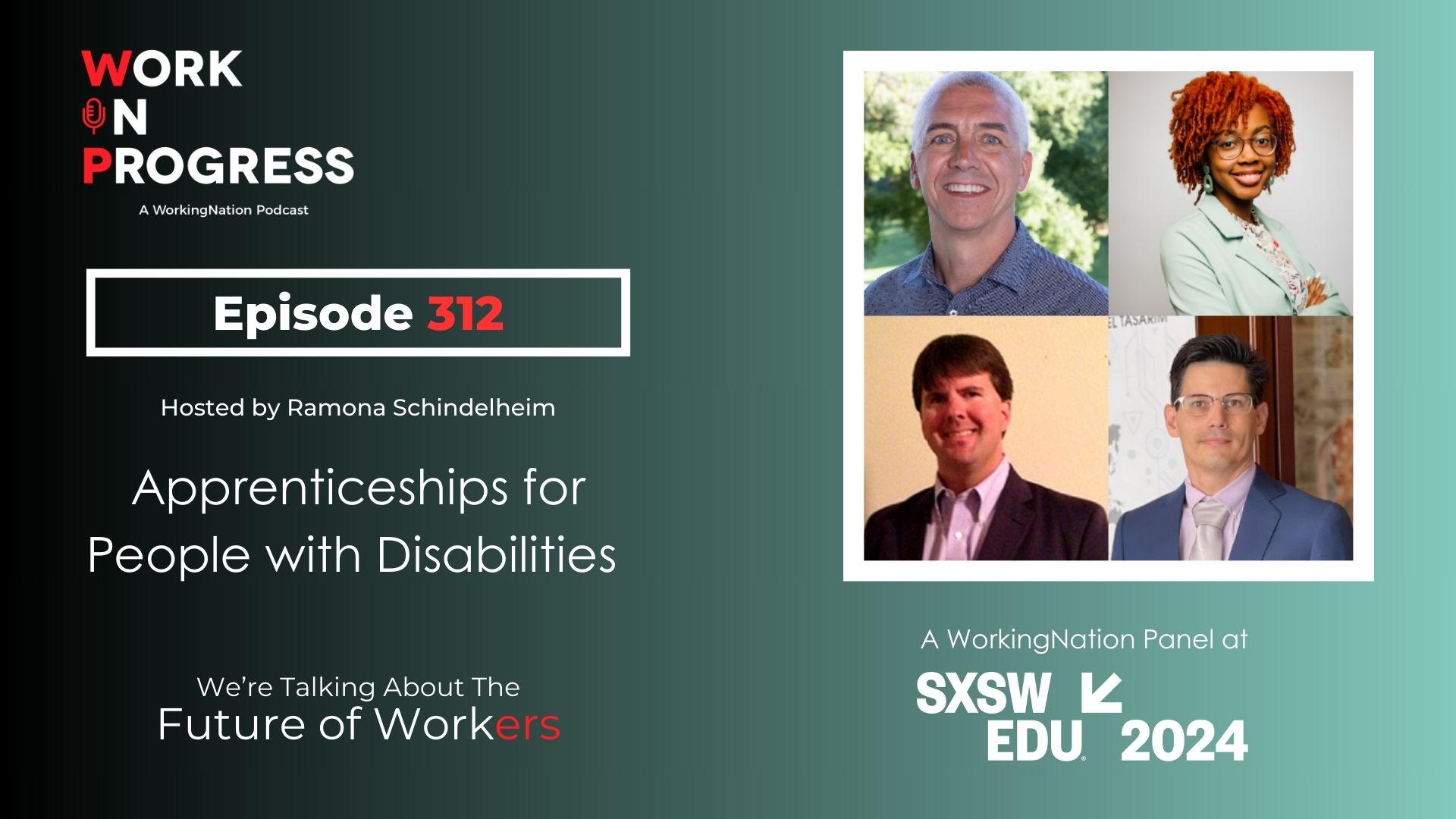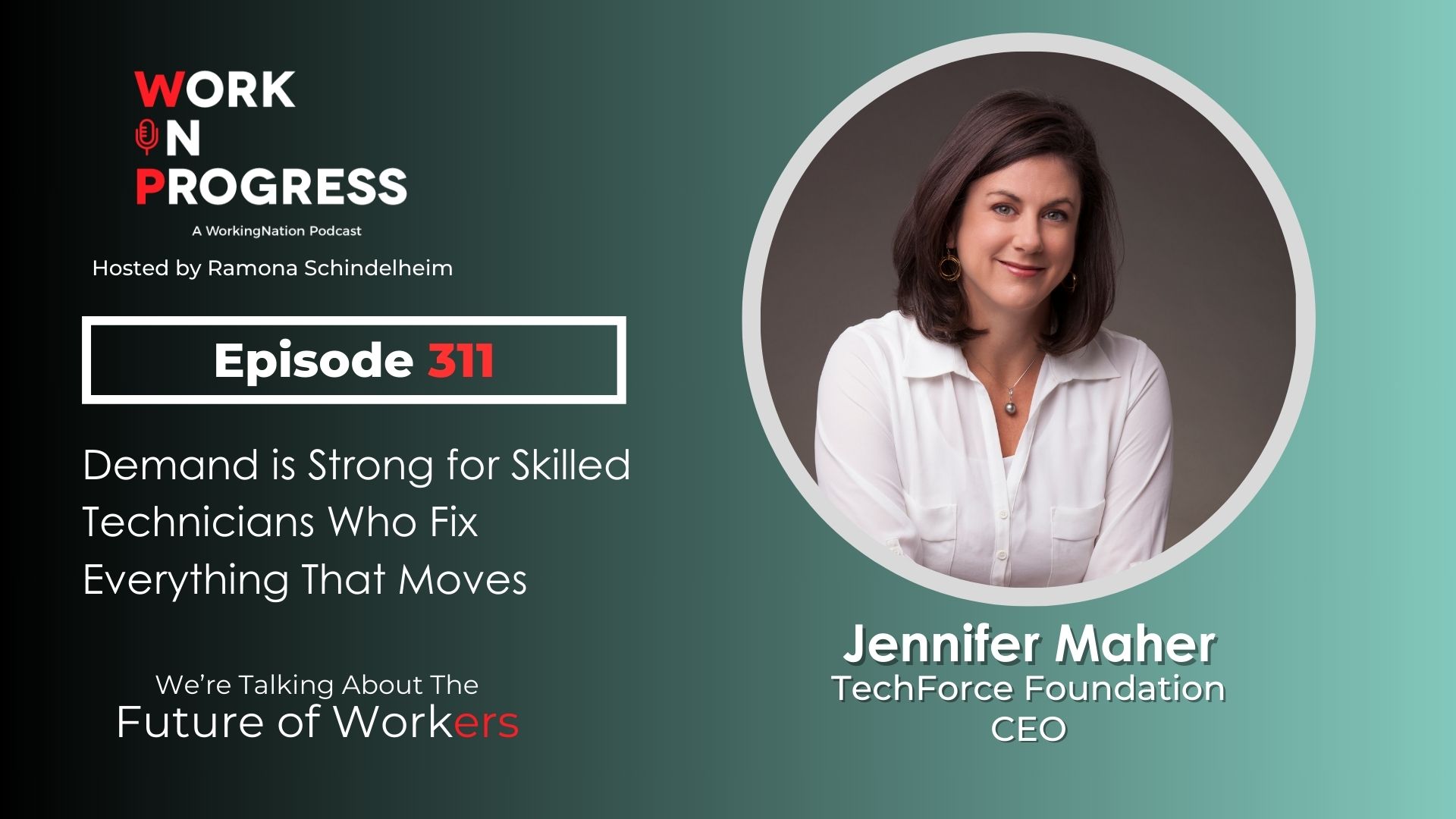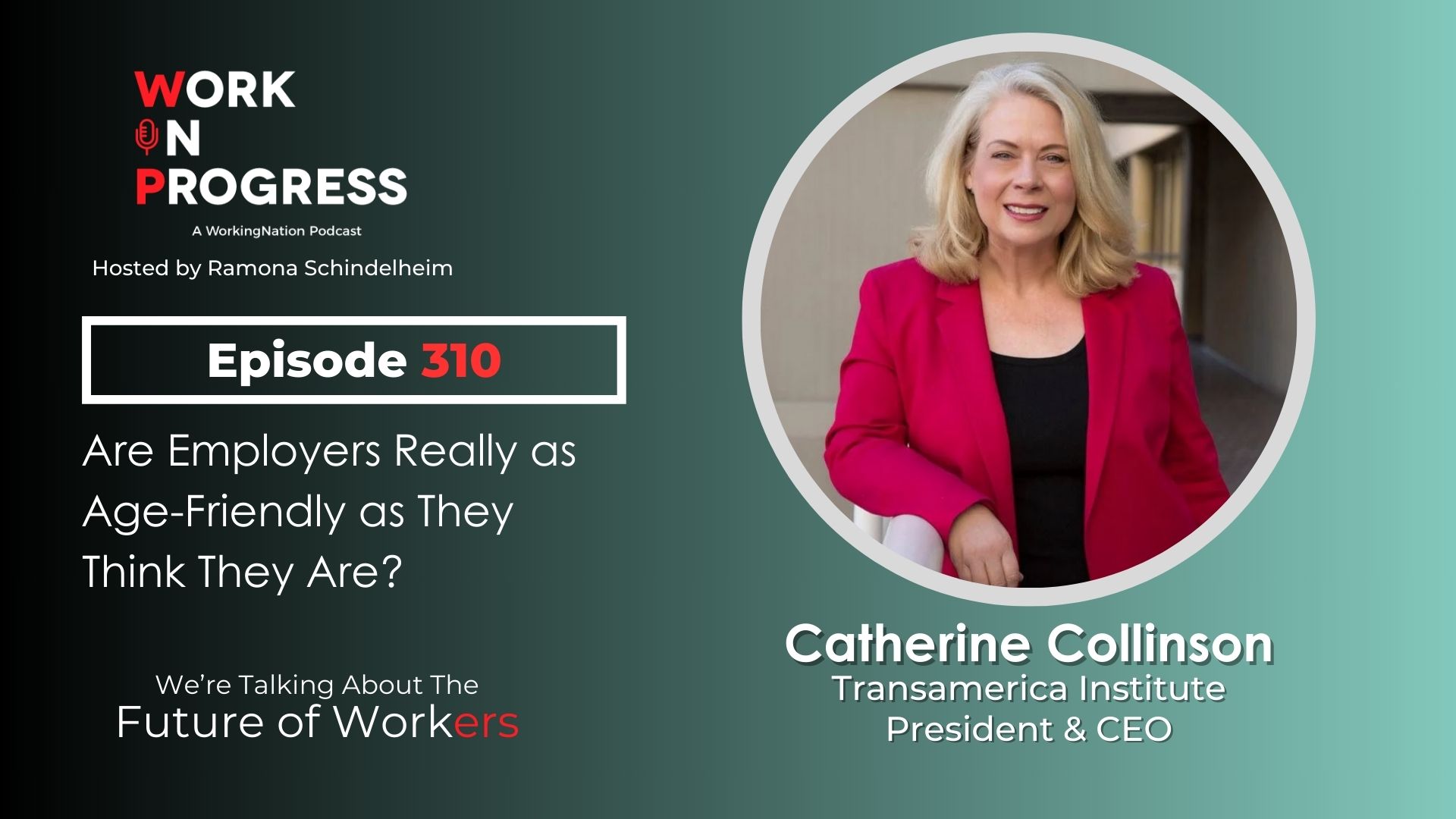Podcast: Play in new window | Download | Embed
Subscribe: Apple Podcasts | Google Podcasts | Spotify | Pandora | Youtube Music | RSS
WorkingNation partnered with Cognizant U.S. Foundation to explore solutions to the lack of diversity in the tech industry and share those stories in a series of podcasts and articles. This is the final part of the six-part series. If you missed one of the previous stories, you can find them all here on WorkingNation.com.

“Community is at the very core to what we do.” Rubén Harris is the CEO and co-founder of Career Karma. These are the words Harris chooses to sum up how his company—an app and web platform that connects career transitioners with coding and tech boot camps—is changing the makeup of the tech industry.
“We work with about 450 different boot camps in our directory, 7,000 trade schools, colleges, and universities. What’s very important is for us to preserve trust with our users,” Harris tells me in this Work in Progress podcast. “So, it’s very important for us to curate training programs that they can trust that actually have outcomes.”
Founded three years ago simply a trainee-trainer matching tool, the organization blossomed into a peer support network that is helping people who never thought they belonged in the tech industry break down internal and external barriers to entry.
Harris makes a point of saying you’re never too young to start coding, and you’re never too old. While tech is an industry that has traditionally been white and male, Harris doesn’t see it in terms of race or gender. Instead he sees it more in social-economic terms. “These are people that are blue collar that don’t have access to the technology industry and have never been in there before.”
Typically, Career Karma users tend to be 25 and older, and many of them hadn’t thought about a tech career until recently. “They’ve got kids. They have families. They might be working a job. They might have a degree from a state school or a community college, but they didn’t learn exactly what they want to learn. They’re in a job that is not exactly what they love to do.”
This is where community comes in.
Every person that downloads the app gets matched with a coach that’s currently enrolled in a job training program themselves. “They’re able to be put into a peer mentorship group of other people that are like them, like other moms or dads, and that keeps them motivated during the program,” says Harris.
“A career transition is very psychological and people lie to themselves—’I don’t have time’ or ‘I don’t have money,’ all kinds of things like this, but they want to do it. So we help people understand that you actually have no barriers, and just because you grew up in (a certain) environment doesn’t mean that you can’t do this. Just because you have this obstacle doesn’t mean that you can’t do it. Let me show you somebody that did it. That’s essentially what we do.
“If you can put people that have a different perspective, no matter what obstacle is in front of them, you’re going to start changing the game. And that’s why we started with community first of people that have the mindset that there are no obstacles and we will overcome together.”
Harris and I go on to talk about Reskill America launched by Career Karma with the help of outside funders and designed to get past another hurdle that some of these transitioning workers face—the lack of a laptop and the inability to afford to buy one of their own
The idea for Reskill America also came out of the sense of community Harris was seeing in the peer network.
“When these people came to Career Karma with the desire and the willpower and the heart and the passion to pursue one of these careers—which is what you really need—(some) didn’t have access to a device. And what I started noticing in our Q and A forums is these individuals banding together and helping each other out, giving each other laptops, raising GoFundMes for laptops.”
Since last summer, the campaign has raised more than $300,000 and given out more than 1,000 laptops, thereby helping more people to move closer to their dream of being part of the tech industry.
Says Harris, “It’s just helping people believe in themselves and do what they love and not just get employed financially, but have a superpower in a trade that they could pass down to the rest of their family and create this really powerful generational impact.”
You can listen to the full podcast here, or download it wherever you get your podcasts.
Follow the entire Expanding Opportunities in Tech series here.
Download the transcript for this podcast here.
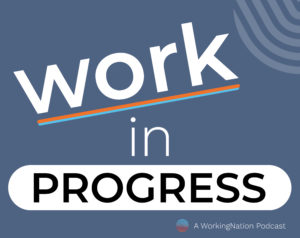
Episode 173: Rubén Harris, CEO and co-founder, Career Karma
Host: Ramona Schindelheim, Editor-in-Chief, WorkingNation
Producer: Larry Buhl
Executive Producers: Joan Lynch, Melissa Panzer, and Ramona Schindelheim
Music: Composed by Lee Rosevere and licensed under CC by 4.0.
You can check out all the other podcasts at this link: Work in Progress podcasts

